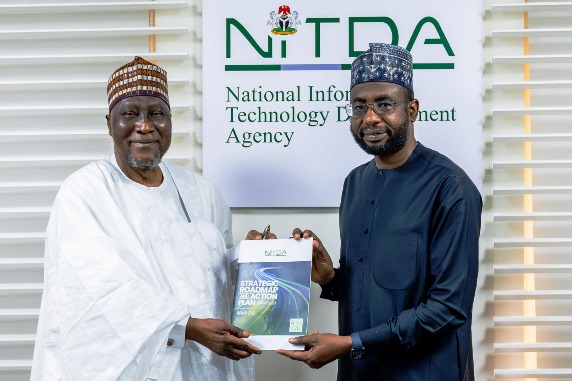The Director General of the National Information Technology Development Agency (NITDA), Kashifu Inuwa Abdullahi, has called for a collaborative effort to review and enhance the current school curriculum to incorporate digital skills at all educational levels. This initiative aligns with President Bola Ahmed Tinubu’s Renewed Hope Agenda, which aims to create millions of jobs by leveraging digital technologies and achieve a digital literacy rate of 70% by 2027.
Abdullahi made these statements during a meeting with the management team of the Nigerian Educational Research and Development Council (NERDC), led by its Executive Secretary, Professor Janaidu Ismail, at NITDA’s Corporate Headquarters in Abuja.
Role of digital technology in shaping curriculum
He emphasized the critical role of digital technology in shaping curriculum design, content, and processes, highlighting the global shift towards digitalization. “We must lead in developing a competency-based, outcome-focused curriculum that addresses the demands of the 21st century,” said Abdullahi. “This will enable us to produce a skilled workforce capable of meeting the needs of the Nigerian market and attracting investment from other countries. Integrating digital skills into the curriculum is crucial for national development and economic growth.”
RELATED: NITDA, Ministry of Youth, and NYSC launch digital literacy initiative for Nigerian youth
Abdullahi further underscored the importance of aligning government policies with sustainable development, 21st-century skills, the digital economy, creative arts, and digital technology to build a pathway for nation-building. He explained that the curriculum must evolve to provide citizens with the knowledge and skills necessary for growth and development in the digital age.
Executive Secretary of NERDC, Professor Ismail Janaidu, reiterated the Council’s commitment to curriculum development at all educational levels, stressing the importance of incorporating digital literacy. He highlighted the visit’s purpose to strengthen the existing relationship and explore new areas of collaboration for national development.
Janaidu also outlined the NERDC’s role in promoting book development, local authorship, educational research for policy formulation, and the development of Nigerian and other languages to enhance education delivery.
The Professor commended NITDA for its significant contributions to advancing Information and Communications Technology (ICT) across Nigeria, noting the positive impact of these initiatives on the ICT sector’s growth and development.
































